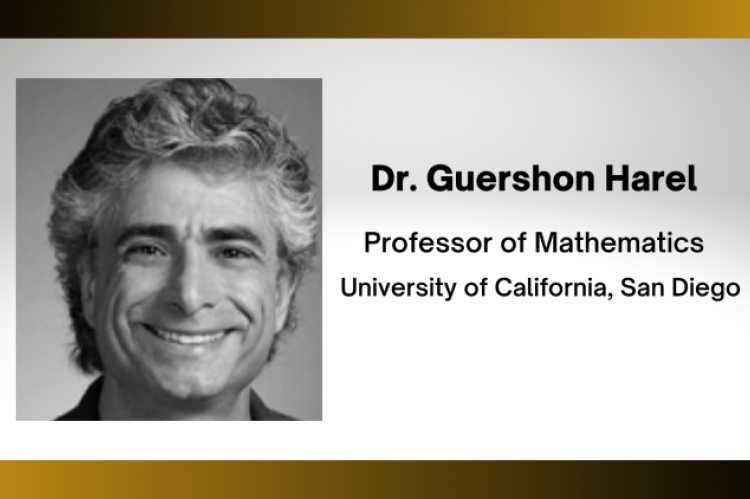Opportunity to meet with Guershon Harel, July 2023
Dr. Harel will be in East Lansing the week of July 24, '23, and would like to meet with mathematics education researchers while he is in town.
Please contact Dr. Harel at harel@math.ucsd.edu if you would be available to meet with him.
__________________________________________________________________________
Guershon Harel is a professor of mathematics at University of California, San Diego.
Harel’s research interest is in cognition and epistemology of mathematics and their application in the learning and teaching of mathematics. His research has focused on two areas: the multiplicative conceptual field (MCF) and advanced mathematical thinking (AMT).
MCF deals with the learning and teaching of multiplicative concepts, such as multiplication, division, fractions, and ratio and proportion. Harel’s work in this area has dealt with the interconnectivity of the cognitive development among different MCF concepts, and has explored cognitive processes that take place during the child’s transition from additive reasoning to multiplicative reasoning.
AMT deals mostly with the learning and teaching of mathematics at the undergraduate level. Harel’s work in this area has focused on functional reasoning, linear-algebraic reasoning, and deductive reasoning. Harel’s work on functional reasoning centered on students’ ability to interpret situations in terms of function, and the cognitive and instructional processes involved in the various abstraction levels of this reasoning.
His work on linear-algebraic reasoning includes analyses of didactical and epistemological difficulties involved in the learning of linear algebra; approaches to the teaching of linear algebra and their relative efficacy; and the cognitive and pedagogical roles geometry plays in the learning and teaching of linear algebra.
Harel’s work on deductive reasoning focused on the development of a cognitive framework, informed by historical, philosophical, and cultural analyses, for examining students’ conceptions of proof, called proof schemes (ways an individual assures oneself and convinces others about the truth of a mathematical assertion). The framework offers a field-based taxonomy of students’ proof schemes.
Through his work on the MCF and AMT, Harel formulated a theoretical framework, called DNR-based instruction in mathematics. DNR aims at providing a language and tools for formulating and addressing critical curricular and instructional concerns. The ideas underlying DNR are indigenous to well established theories, the prominent of which are Piaget’s theory of equilibration, Vygotsky’s theory of genetic development, and Brousseau’s theory of didactical situations. Some of the main characteristics of DNR are: (a) well-articulated instructional principles for curriculum development and instruction; (b) rigorous definitions of concepts in terms of which the principles are formulated; © premises identified as the underlying foundations for these principles; and (d) cognitive, epistemological, and cultural justifications, coupled with empirical evidence, supporting DNR claims.


